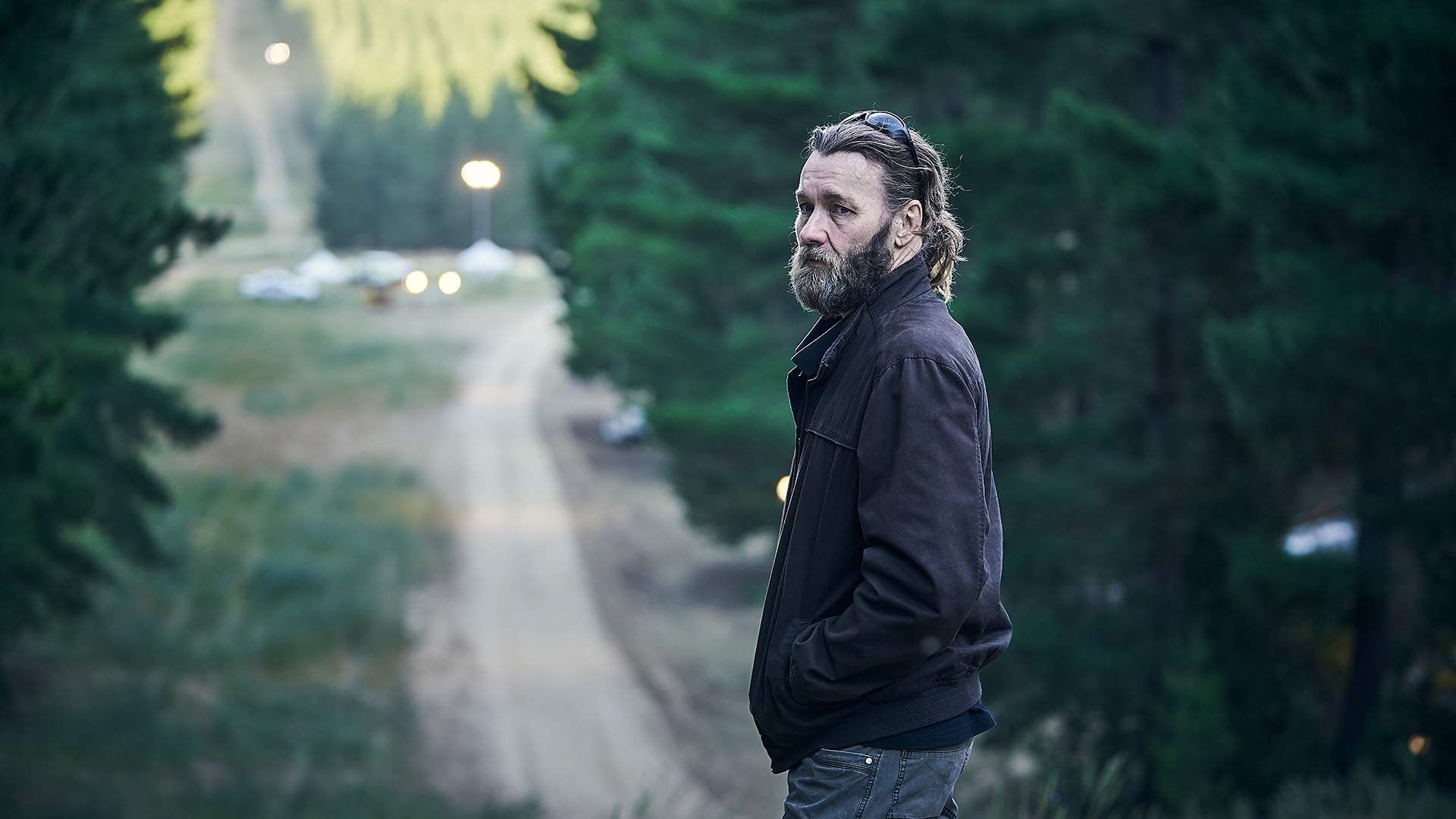When Joel Edgerton Asks You to Direct an Aussie Crime-Thriller: Chatting 'The Stranger' with Thomas M Wright
Based on the Daniel Morcombe case, but fictionalising the details and focusing on a police investigation, this Cannes-premiering Australian film wasn’t easy to make.
"I find that it takes a while for people to return to themselves after the film." For anyone who's seen The Stranger, writer/director Thomas M Wright's observations might sound like an understatement. For those who haven't yet watched the actor-turned-filmmaker's second feature behind the lens, after 2018's Adam Cullen biopic Acute Misfortune, it may come across the same way. In Australia in particular, the fact that the Joel Edgerton- (Thirteen Lives) and Sean Harris (Spencer)-starring crime-thriller is based on the 2003 abduction and murder of Queensland schoolboy Daniel Morcombe has garnered attention.
The Stranger takes its cues from that monstrous real-life case, adapting Kate Kyriacou's non-fiction book The Sting: The Undercover Operation That Caught Daniel Morcombe's Killer; however, it doesn't recreate the crime. It also doesn't depict the victim, or refer to him by name. Everyone has been fictionalised, and there's no violence in the film. Instead, it tracks the enormous police effort to capture a culprit using a criminal gang as a ruse, in what's known as the 'Mr Big' technique. Edgerton plays the incognito cop tasked with befriending the suspect, while Harris is relentlessly perturbing in the latter part.
It was Edgerton, also The Stranger's producer, who optioned Kyriacou's text, saw Acute Misfortune and proposed the feature to Wright. The director was initially reluctant, but sticking to the above stipulations was the only way that he could approach the picture, and was willing to. "Those decisions about a complete unwillingness to represent any violence, to represent the victim, to represent those that cared for them — and to centre the film on a fictionalised version of a police operation like the one used in that particular case — those aren't thin acknowledgements," Wright explains. "They're deeply layered considerations that've been placed at the centre of the entire film."
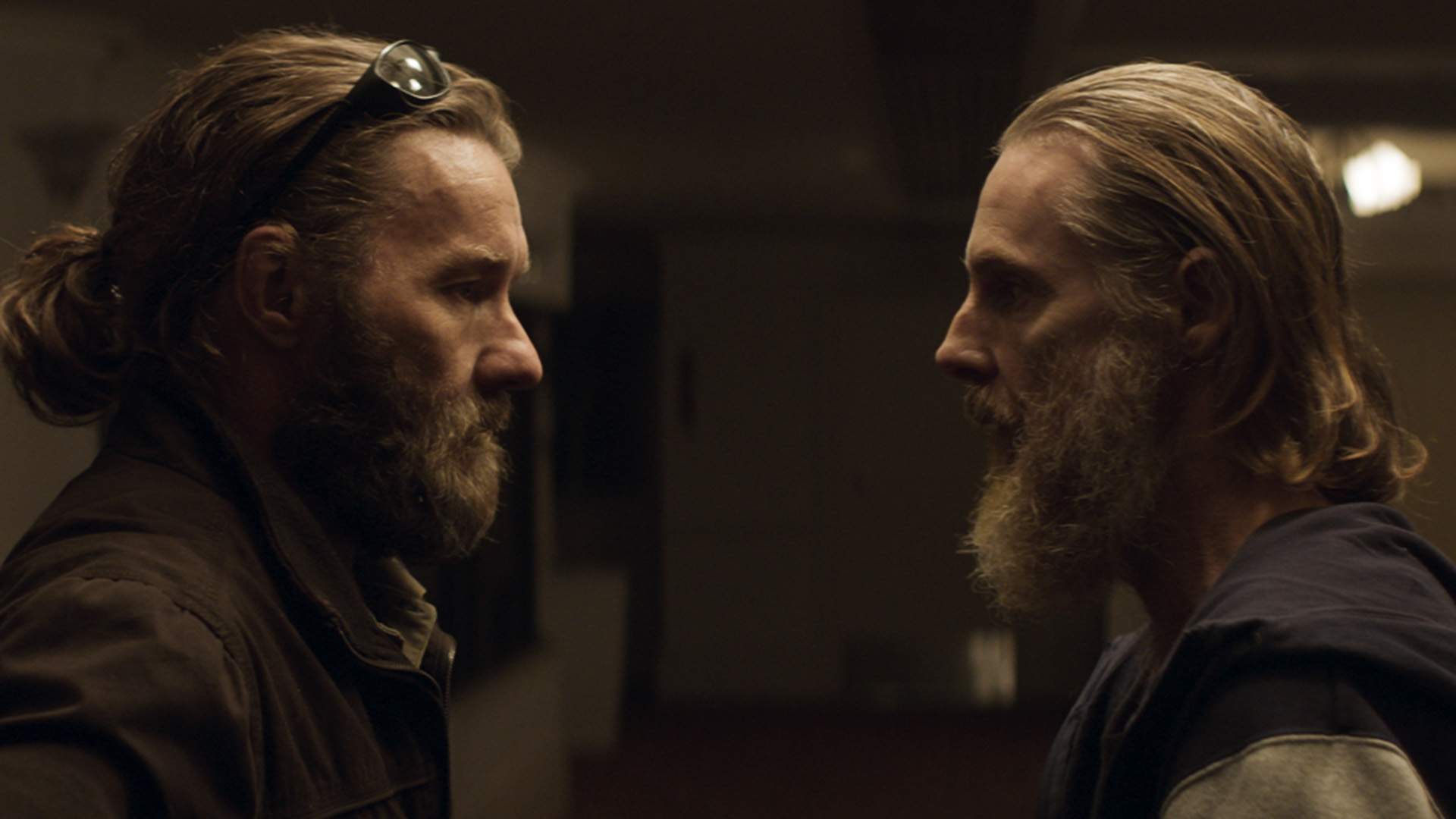
In every second, The Stranger feels as carefully and meticulously constructed as Wright's framework suggests — and, by design, dictates. It also feels not just tense but tough, as it should given the story it's interrogating. Debuting at the 2022 Cannes Film Festival, the feature received a seven-minute standing ovation. Now, it plays Aussie cinemas from October 6 before reaching audiences globally via Netflix on October 19.
"It's an undeniably different experience," Wright notes of watching The Stranger at home versus on the big screen. "It's an intensely discomforting and very powerful film to invite into your home. For the two hours that the film lasts, I think it will take people into a completely different mindset, into a different psychological realm," he continues, while chatting us through making a movie that's both unshakeably potent and personal.

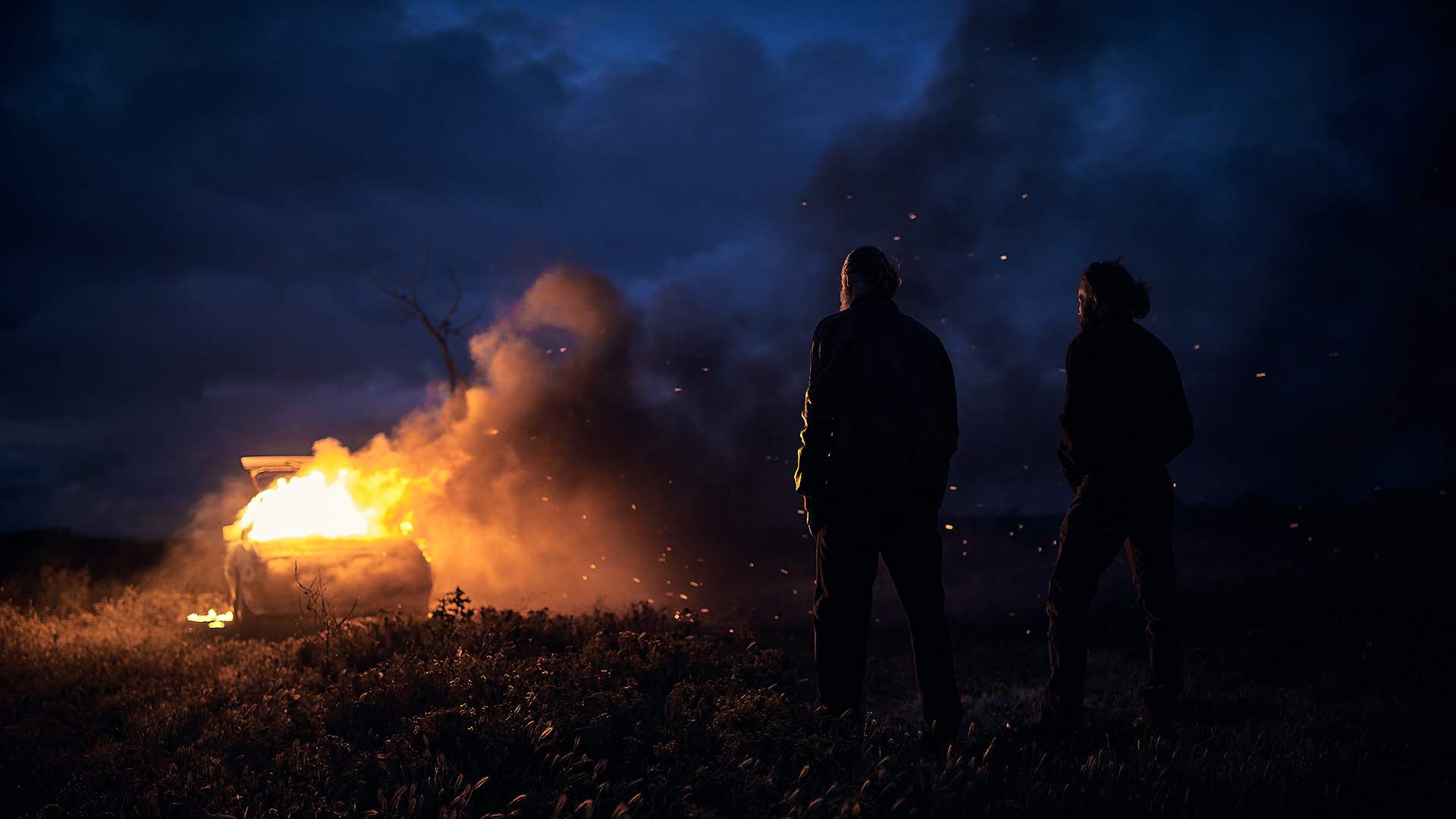
ON WORKING OUT THE BEST APPROACH TO A HORRIFIC REAL-LIFE CASE
"Kate Kyriacou's book The Sting, which Joel had optioned, is a non-fiction work of investigative journalism about that specific case. It goes into personal details about the victim, those affected, the other suspects — and I felt that I had no right to represent the victim, that any attempt to represent them would only diminish them and all of their infinite possibilities, and that I couldn't presume to know anything about what that family and those who cared for him went through. So early on, the initial terms for me were: there'll be no representation of the victim of any sort, there'll be no representation of the people who cared for them, there'll be no violence whatsoever in this film.
There's an unconscionable way of making this film. There's a morally unforgivable way of making this film. It would not be difficult to create tension in a film about the physical vulnerability of a child, and I wasn't interested to use that space, which is sacred to those real people, for the ease of making a film. So I began to think about these strangers, and that stranger of the title could refer to the perpetrator and that archetypal fear of the stranger in our society — but actually we are a society of strangers.
It could also refer to the victim, to their family. Or, to that central figure and all those undercover operatives in the film whose real names we never learn. Or, to all those nameless people, the detectives and searchers at the end of the film who provide resolution for those strangers for them, that family and the victims who've they've never met. It clearly became to me this idea of connection as a society, and of empathy, as the gravity that is going to bind film together.
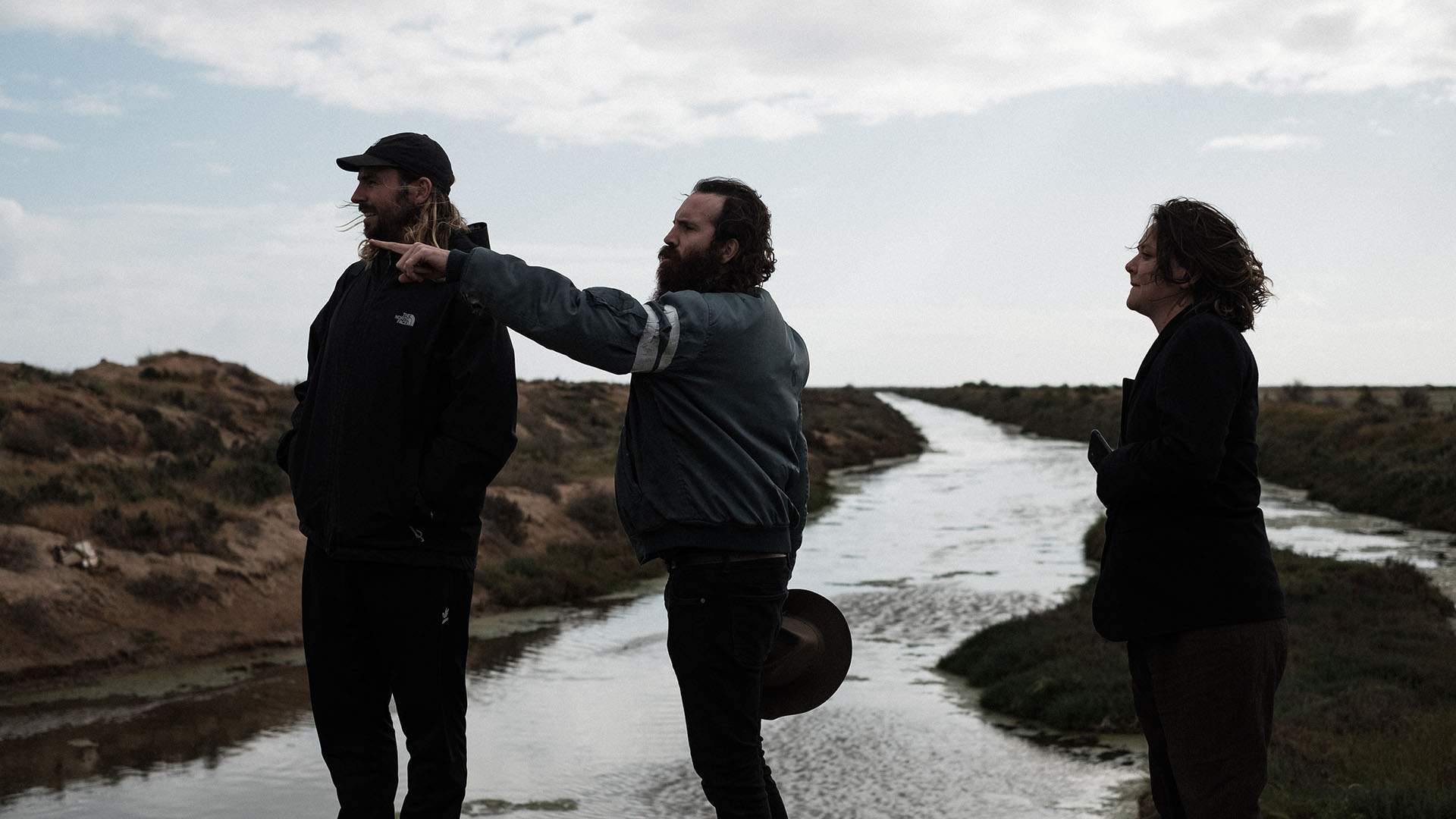
At the time that I was writing it, I live in the inner north in Melbourne, it's where I grew up, it's where my family lives, and there were a whole series of murders of women by strangers, by people they've never met. And it shook the entire foundation of the society — and every state and territory has their own version of these cases that totally shift our perception of safety and of the social contract. They make it feel like a lie or something weak, and it had such an effect on the community down there. It was an outpouring of empathy. And these are just the cases also that have created headlines and achieved large police commitments, and where there has been public recognition.
There are so many people out there, and so many crimes that take place, where there is none of that. We still have a woman a week dying of incidences of domestic violence in Australia, and many of those victims go unacknowledged. Of course, I'm not setting out to make a public service announcement in this film, but there are individuals who have to be the first person there, and who give years of their lives, and their mental and physical health, to trying to resolve those incidences of violence."

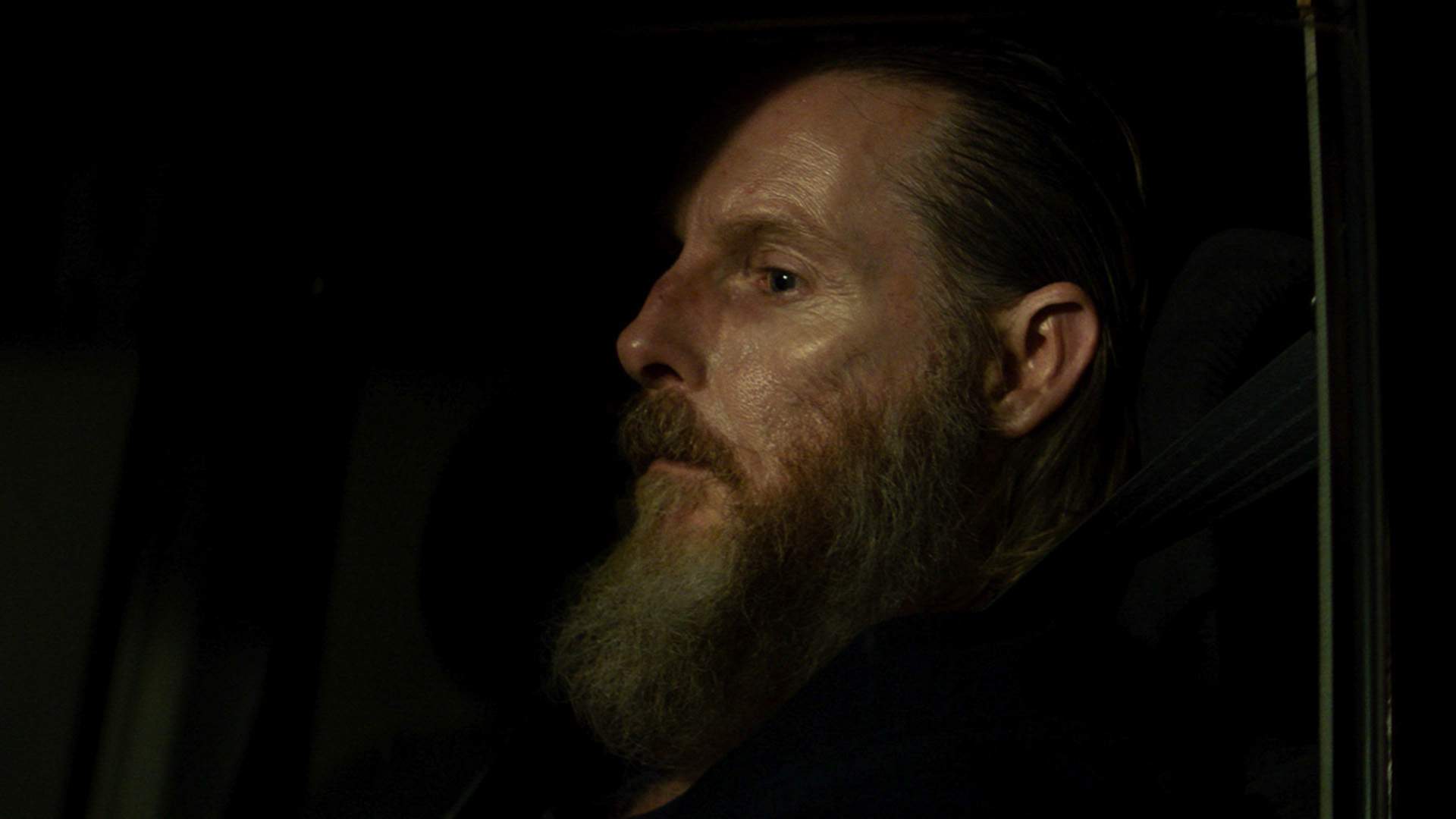
ON FINDING PERSONAL REASONS TO MAKE THE FILM
"When we began work on the film, I told everybody that I worked with that I wanted them to find their own reason for making this film — and I wanted them to find a personal reason to make this film. I do think it was a very personal film for all of us who worked on it.
Joel said the other day that it was the quietest set he has ever worked on. It was a very tense set because of the seriousness of the material that we're dealing with, and the moral responsibility we felt, and the focus it required of us.
For me, it absorbed every waking and dreaming moment of my life for three years, and I felt a tremendous moral responsibility to get it right and make something that we could all stand behind — and that didn't let any of my collaborators down. I'm not talking about the Academy Award-winning producers. I'm talking about the sound recordist and production designer and assistant editors, and everyone with whom you make a film. And also because of the presence my son in the film, because I wrote it for my son to portray Joel's son in the film. In the process of filming, Joel found out that he was going to be a father. That made it intensely personal and emotional for him also, and I watched it change him and shift his entire being.
Both Joel and Sean were transformed by the process of making this film. Sean's wife actually saw the film after we'd finished and said that there was nothing of him left in that character, that he was completely absent. She didn't recognise him, and I think she found that really overwhelming and very powerful. I can attest to that as the person that was there beside them the entire time — this was a tense, difficult film to make that just took those central cast, and I include here Jada Alberts in particular, into a place where they really weren't their selves anymore."

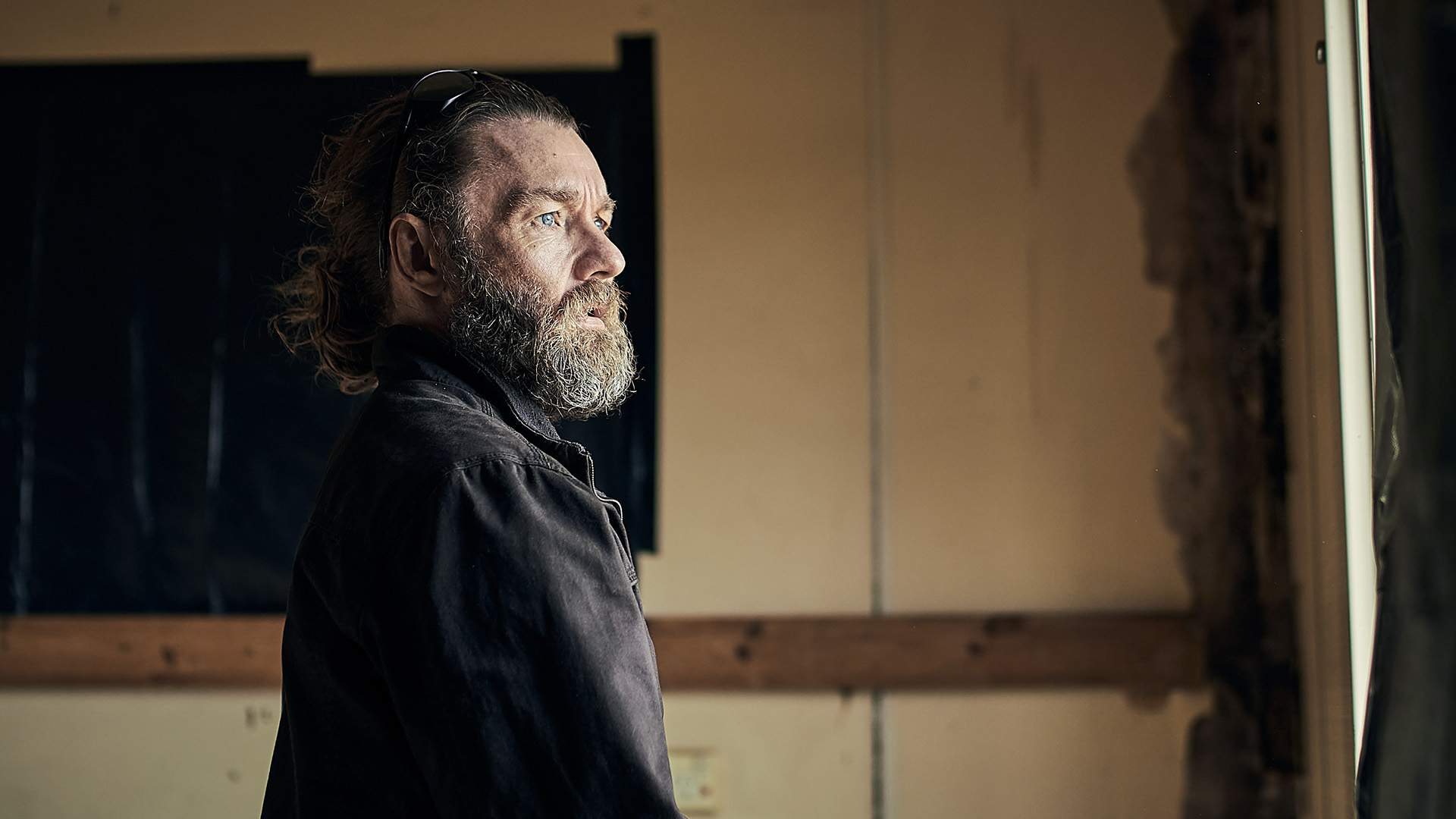
ON MAKING THE FILM PERSONAL FOR AUDIENCES
"Cinema has always been a collective experience, and when films really work, we're simultaneously aware that they're a shared experience but they're also deeply personal. This film, for people who respond to it — obviously not for everybody — gets itself into a very personal place. I think it does that by making itself physical and physically felt. That's why breath was such a key part of the film to me. I wanted to begin with something that made an audience active, even in the most subtle, underlying way, because every part of the film asks that the audience be active in that physical, subjective experience of what Mark [Joel Edgerton's character] is going through.
You're trying to tune people to the frequency of the film, to the psyche of the people working on this kind of case. There's a hyper-alertness. It's a film partly about trauma more generally — a film about the fact that those of us who reach adulthood, we come into the world and at some point in time we become aware of the darkness and the unknowable things within it. We have to find a way to be able to reconcile that and continue to move forward and find meaning, because the thing about violence is that it threatens to strip things of their meaning. It renders things meaningless.
So you're dealing with a hyper-alert psychology. It's certainly something that we were actively trying to encourage in the audience. When you set out to make a film, you are trying to show people something they haven't seen before, to get them to feel something they haven't seen before — and, to relate to the film in a different way while understanding it's part of an impossibly deep lineage of stories, and these kinds of modalities of storytelling that are well-established now in cinema."

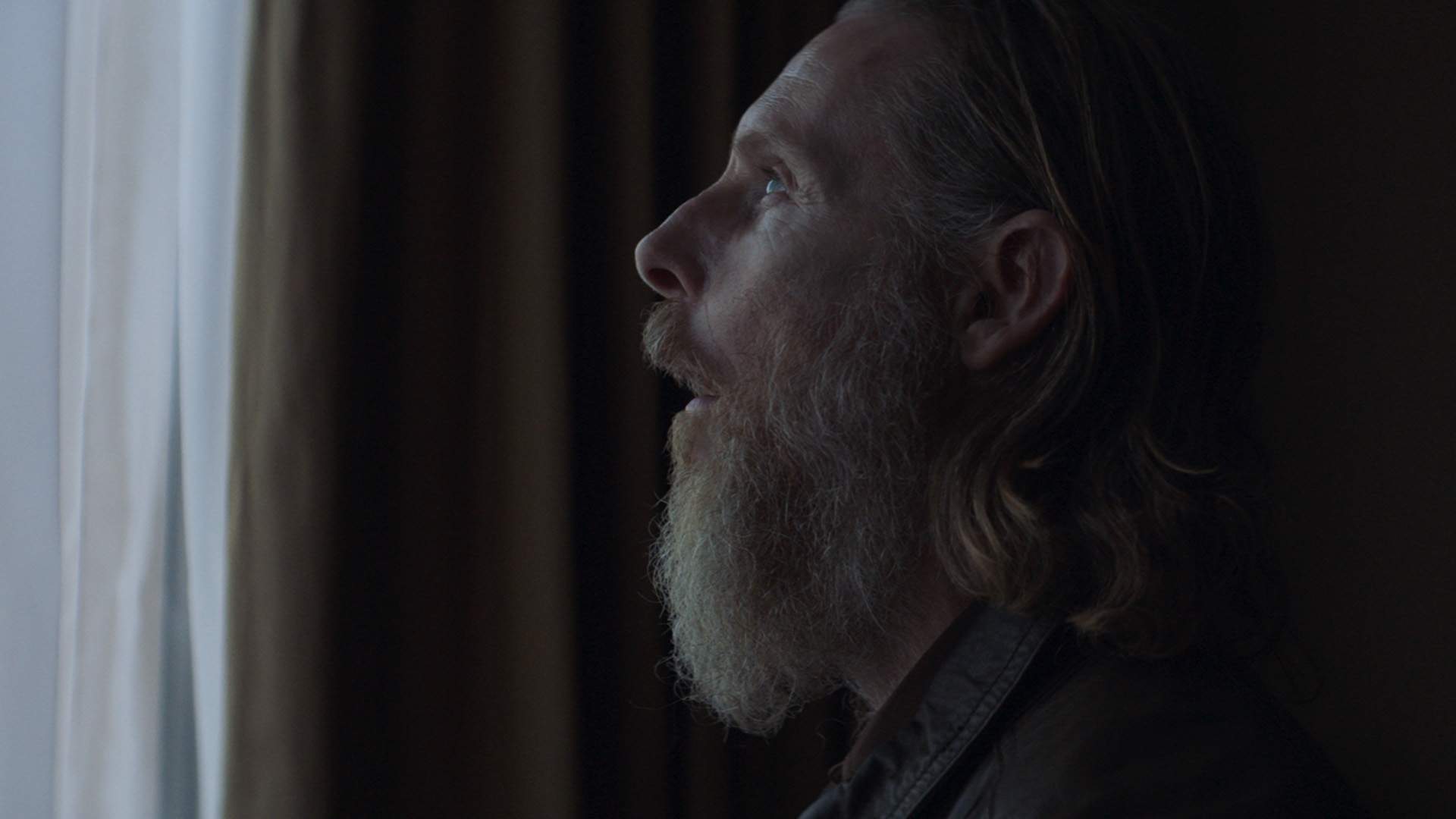
ON AUSTRALIA'S OBSESSION WITH CRIME STORIES — AND STANDING OUT
"Even though the film is part of a strong lineage of Australian crime cinema, I just think it sits outside a lot of that work in its intentions. A lot of these kind of films are more realist depictions of people, and head toward a kind of final emphatic act of violence, which often takes place off-screen.
That's certainly the case in Snowtown. It's the case in Nitram. It's the case in a film like The Boys. Even though the reason for The Stranger is violence, it's not its subject… It begins in the aftermath of that violence. It's an attempt to make meaning and to reconcile the after-effects of violence on individuals and by extension on society.
I think there's a reason that that this genre and these ideas are so prevalent in Australian thinking. It's certainly not limited to Australian film. When you look at our most prominent authors — Richard Flanagan, Chloe Hooper, Helen Garner, Tim Winton, Patrick White — this is a subject that has been grappled with. And in our visual art, and in our music. We return to it over and over again.
I think that has to do with an unreconciled relationship to violence in this country, a landscape that has been marked by violence, and that we know that. We can intuit it, but for the main, we don't have a way to unpack that — and it remains there, unresolved."

The Stranger releases in Australian cinemas on October 6, then streams via Netflix from October 19. Read our full review.
